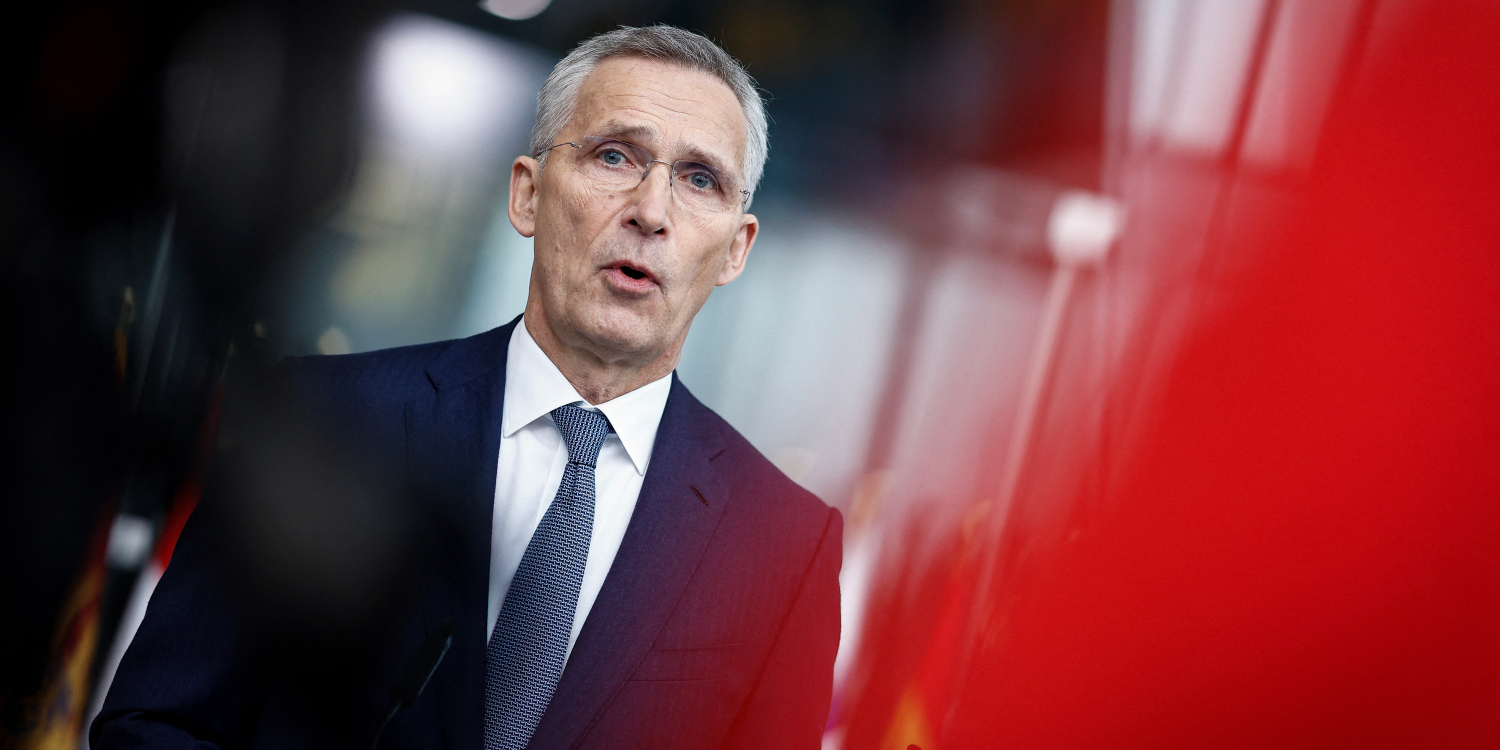Europe 1 with AFP 12:49 p.m., April 3, 2024
“We must ensure reliable, predictable and long-term military assistance for Ukraine,” NATO Secretary General Jens Stoltenberg said on Wednesday. Two years after the start of the Russian invasion, the organization's secretary called for transforming short-term commitment into "long-term" commitment.
NATO must be able to offer "predictable" long-term aid for Ukraine in the face of Russian aggression, its Secretary General Jens Stoltenberg declared on Wednesday in Brussels. “We must ensure reliable, predictable and long-term military assistance for Ukraine,” Jens Stoltenberg said shortly before a meeting of Alliance foreign ministers. The latter are expected to discuss a proposal to create a fund of 100 billion euros over five years to help kyiv.
Asked about this proposal, Jens Stoltenberg refused to give details of this "financial assistance", explaining that discussions would begin this week with a view to finding a "consensus" among the 32 NATO countries before their summit in July in Washington. “Moscow must understand that they (the Russians) cannot achieve their objectives on the battlefield and wait for us (NATO) to get tired” and give up helping Ukraine, explained Jens Stoltenberg, emphasizing to repeatedly Kiev's "urgent" needs for ammunition and weapons.
Moscow on the offensive
Ukraine is demanding more military aid from its allies in the face of Russia, which is now on the offensive on the ground. Russian forces have also intensified their attacks on Ukrainian infrastructure, particularly energy, making the supply of anti-aircraft defense systems even more essential, according to kyiv. The NATO secretary general expressed concern about the situation on the battlefield, explaining that Russian forces were prepared to suffer considerable losses for minimal territorial gains, with "very little respect for human life".
“This is why the situation on the front is so difficult,” he insisted, emphasizing the need for the Allies “to do more”, and first of all by responding to “urgent needs” in terms of anti-aircraft and artillery defense. The Ukrainian forces must ration the artillery shells they fire against the Russian forces, for lack of receiving enough, Jens Stoltenberg further explained. According to some experts, the ratio is one shell fired from the Ukrainian side to five from the Russian side.
A short-term commitment that must turn into a long-term one
He also deplored the blocking of American aid of more than 60 billion dollars in Congress due to the veto of Republican elected officials favorable to former American President Donald Trump. “Any delay has consequences on the battlefield,” he insisted, deeming it essential to transform short-term announcements into “long-term commitments, over several years”. Greater NATO engagement alongside Ukraine, however, faces opposition from Hungary, a member country of the Atlantic Alliance that has remained closest to Moscow since the Russian invasion of Ukraine on February 24. 2022.
The head of Hungarian diplomacy Peter Szijjarto reaffirmed this opposition on Wednesday: “Hungary will not support any NATO proposal that could bring the Alliance closer to war or move it from a defensive coalition to an offensive coalition,” he said. he said on X. According to a NATO diplomat, Jens Stoltenberg tried in vain on Tuesday to contact Hungarian Prime Minister Viktor Orban to try to convince him.

